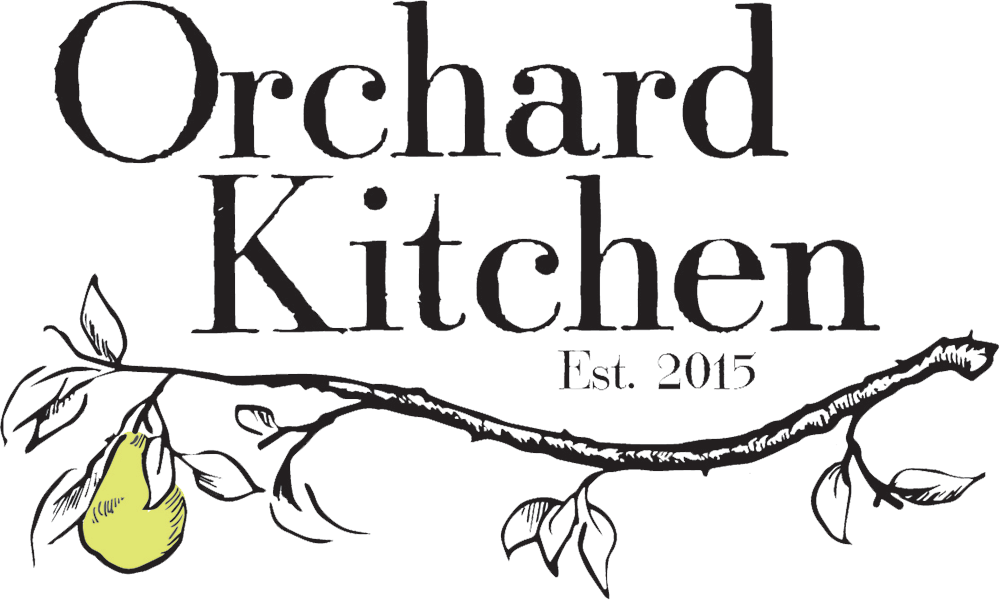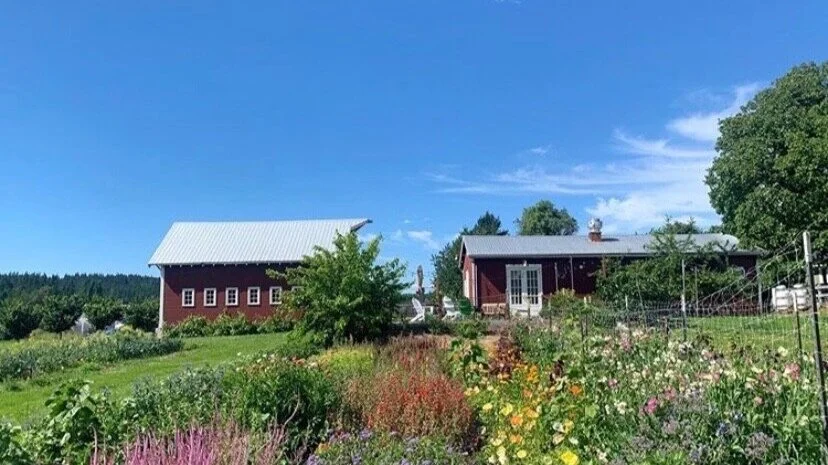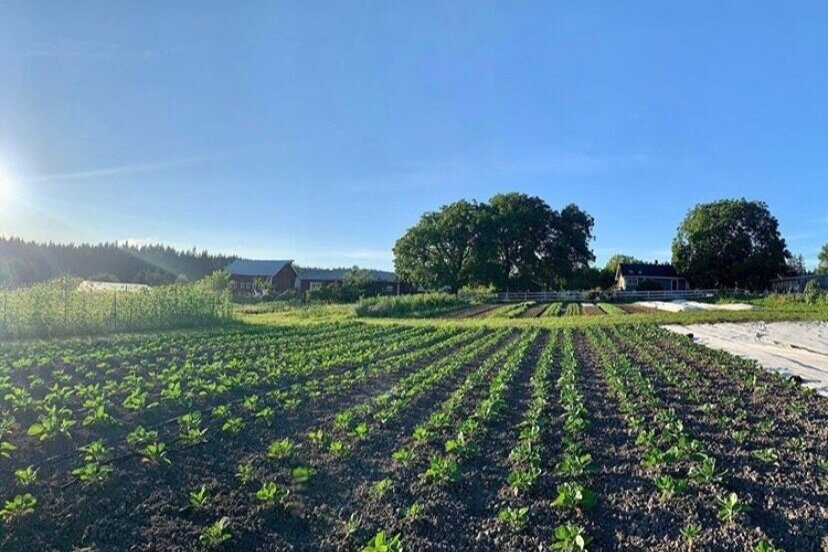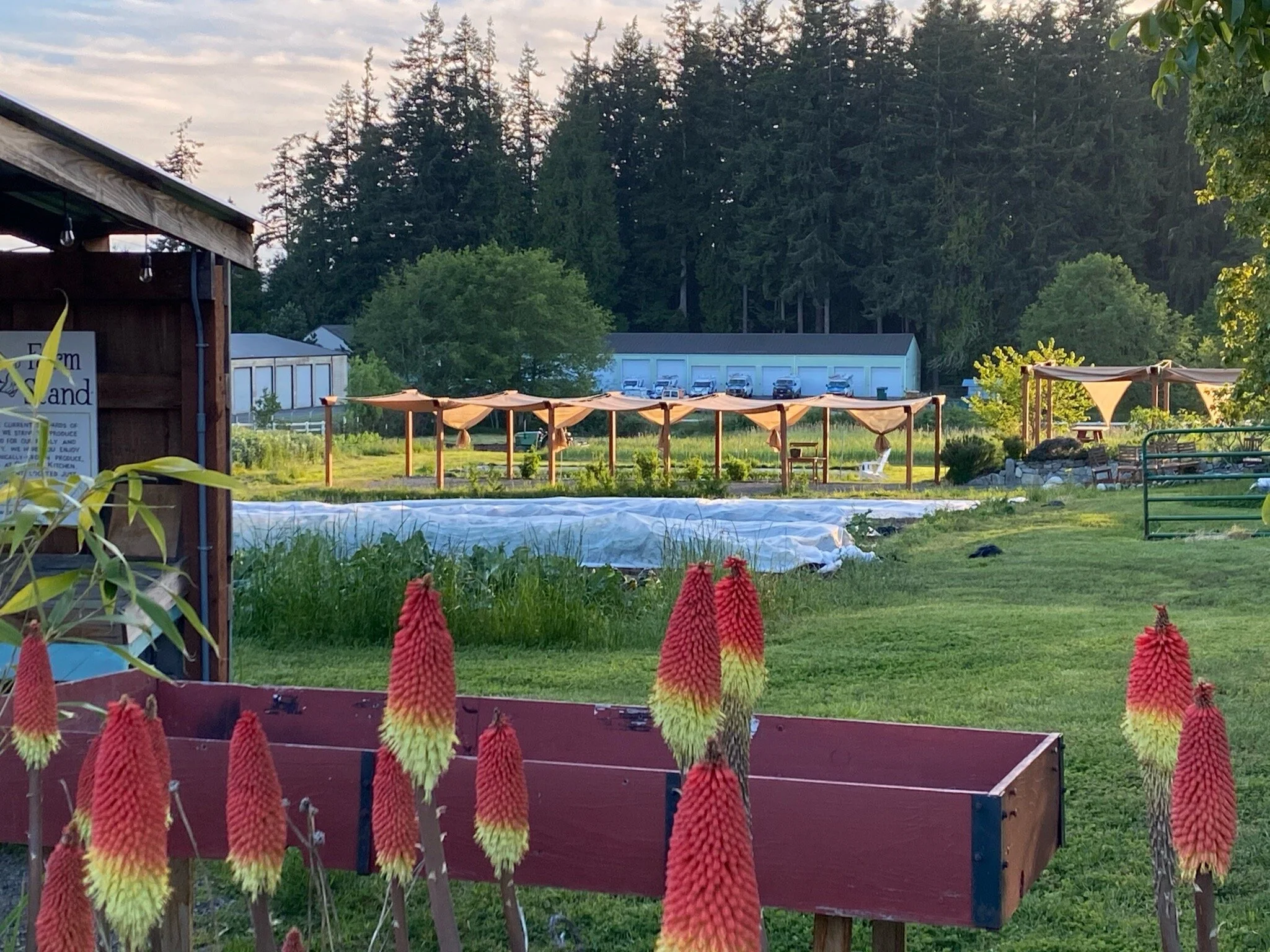History
Our History
You’ll find us on an island in Puget Sound, just about an hour north of Seattle.
Our farm is what remains of a 1920’s twenty-acre hay and cattle farm. It consists of a collection of 9 buildings, including a hay and dairy barn, various out buildings and the little craftsman bungalow we now call our home. The property was never glorious or grand. It has, over the decades, been split down to just under five acres, as piece by piece parcels were parted out by prior owners. What we found in 2011 was run down and faded. But even then we could see that the place had “good bones.”
As luck would have it we were able to buy it at the bottom of the market, and we spent the ensuing five years tearing down, rebuilding, stripping away peeling paint and refinishing floors, rehabilitating buildings, restoring fences and bringing the fields that were overgrown with thistles, back to fertility. This is what would become Orchard Kitchen & Farm.
It was not a glorious vision; not a Blue Hill/Stone Barns Center or Napa-style faux Tuscan estate.
Our vision was and remains grounded in this simple place; literally grounded in this soil, and the connection to what farming used to look like in this part of the world. We are grounded in what this place can become. The driving passion was nothing more than a strong desire to keep one more little piece of ground in agriculture and one more old barn from crumbling down.
Perhaps more importantly, we saw a vision of a place where anyone—but especially those who are disconnected from their food—could to come and begin to understand in a non-didactic way where their food comes from. If my wife Tyla and I could do that, if we could feed people and have them leave not only sated, but a little curious to learn more about food and farming, then we would be doing something far more valuable that just running a restaurant. And maybe we could create a place where we would be proud to raise our girls, too.
Simple.
Well it was simple enough. It just took four years, many pairs of worn-out work gloves, countless Band-Aids, far too much arguing with the County, and the support of a community to bring this vision to reality. And now Orchard Kitchen & Farm has become that hub for food on our island, as well as the favorite dining destination for a loyal cadre of supporters.
It’s not a normal restaurant. The experience is more like going to a dinner party than a restaurant. You will not get to choose what you eat; that’s my job and it is not based on trends or magazine covers, but on what is actually growing right outside. You saw it growing in the field as you walked in; it’s not there for show, that’s actually where the food you will eat comes from.
Simple. And a little crazy. Opening a restaurant in which the owners have decided they know better than the guests what they should eat shows a lot of hubris. But then again, so does thinking that it’s okay to eat asparagus in the northern hemisphere in January. Many of the decisions Americans make today about food are absolutely nuts, and yet we have come to see them as totally normal, even natural.
You see food is, pretty much without exception, stuff that grows.
And when you are dealing with stuff that grows it behooves you to understand how, where, and why it grows, and how it grows best. There are consequences to not knowing those things. The consequence of not understanding that tuna comes from living creatures in an ecosystem is the probable extinction of those species in our lifetime. One of the consequences of not knowing that spring is the correct season to eat asparagus in the Pacific Northwest is eating grossly inferior asparagus. You might even start to think that asparagus is supposed to taste like hay.
This misconception can be challenged by rational discussions about carbon footprints or miles traveled, or by appealing to people’s sense of fairness and encouraging them to support local growers by joining a CSA, whatever that means. Or it can be made vividly apparent by serving people sweet, fresh, tender, aromatic asparagus grown less than 20 miles away and watching them freak out about how good it is. The latter option is the one that appeals to me.
I am a student of food.
I can tell you a lot about the history of food and cuisine and why we do “x” or “y” in the kitchen. Believe me, I do like to hear myself talk, and I’d be happy to hold forth on any subject related to food and cooking. But none of that has one iota of the impact on the average human being, especially when compared to feeding them one perfectly cooked turnip when said turnip is fresh from our fields. That experience is, without exaggeration, life changing.
This is Orchard Kitchen.
We look forward to feeding you soon!
—Vincent



